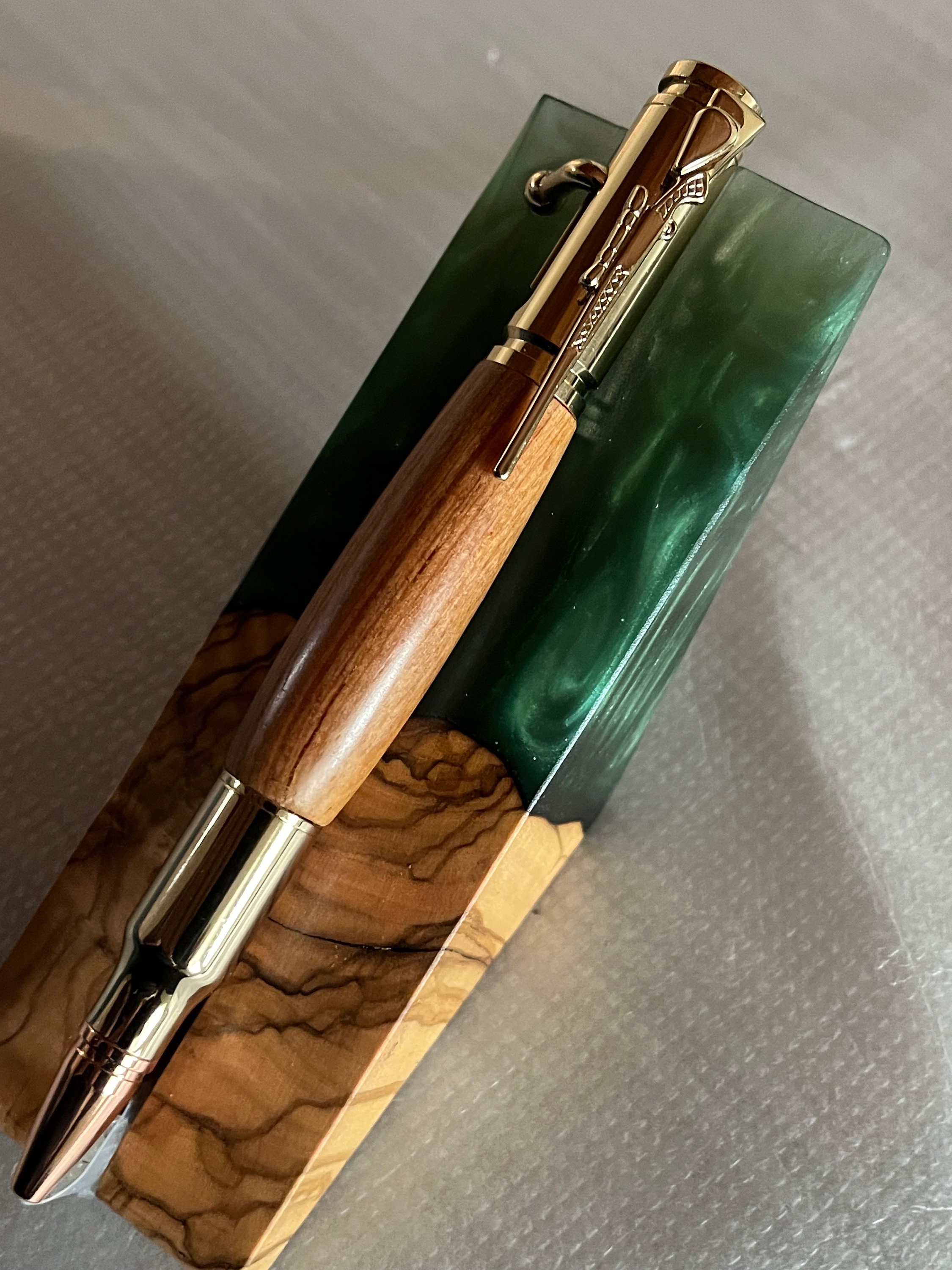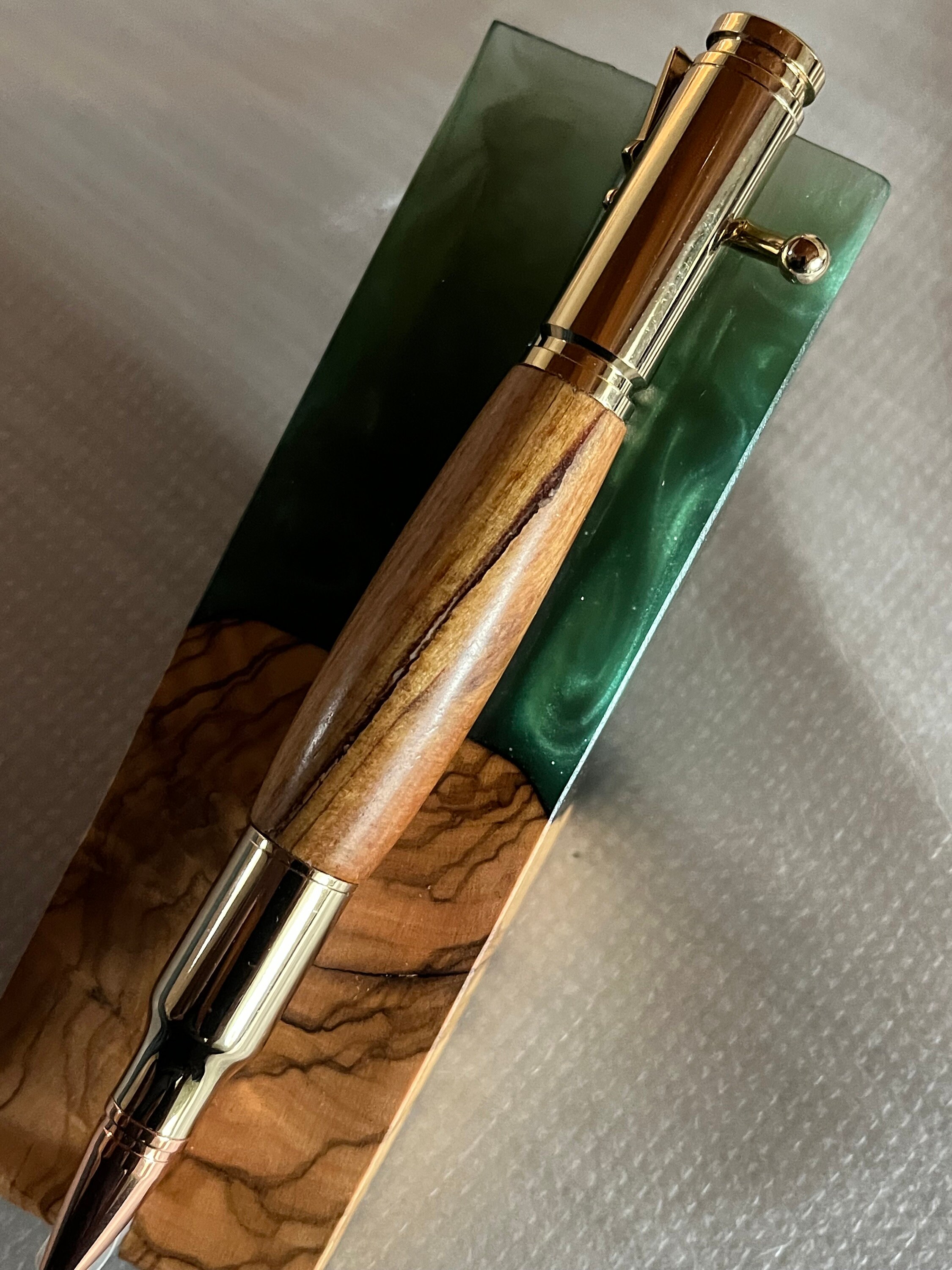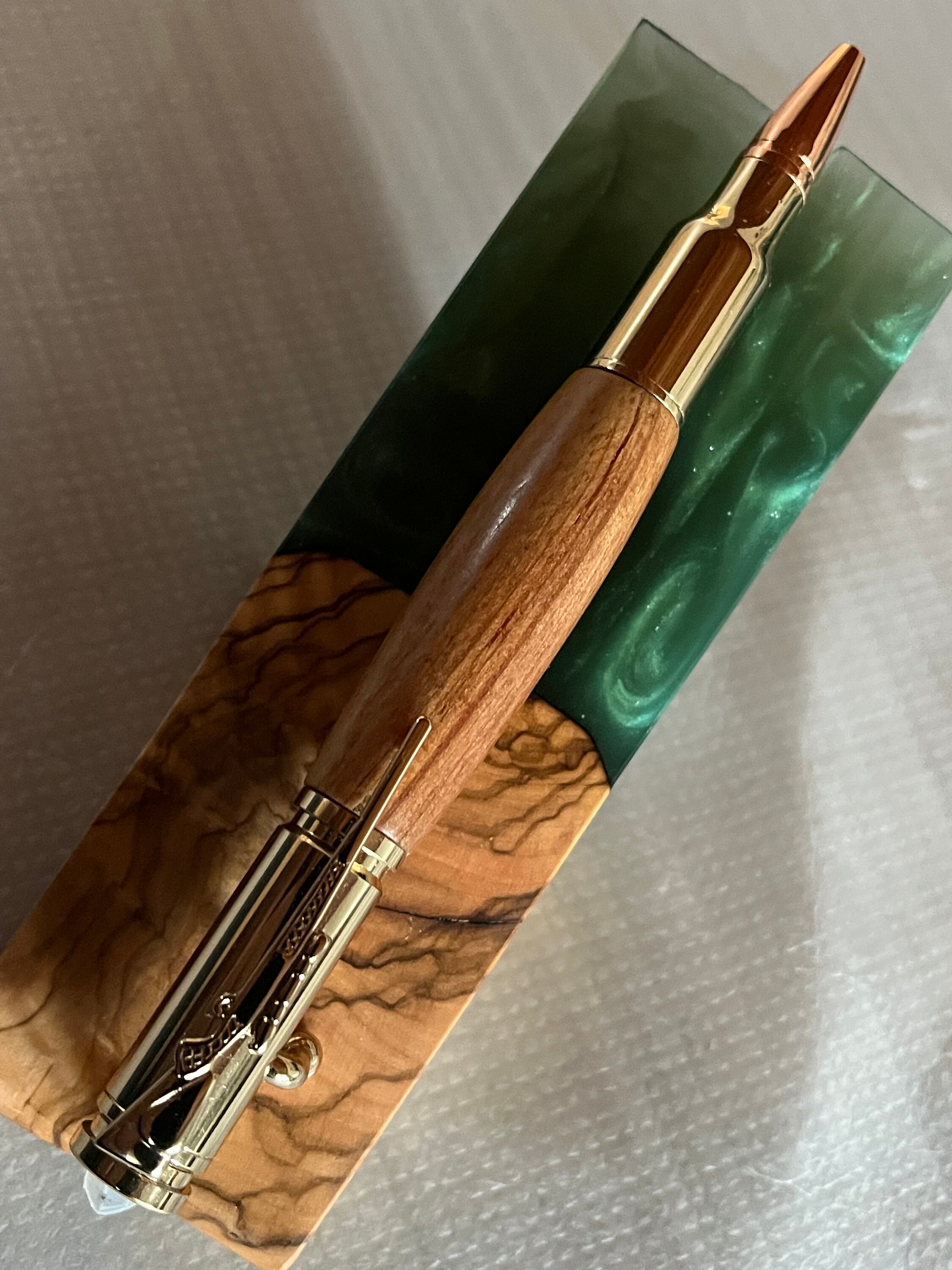Custom Fat Wood Barrel with Gold Metal Finish 30 Cal Bullet Bolt Action Pen (#650)
$49.00
This Bolt Action with Gold Metal Finish 30 Cal. Bolt Action pen is made from Elk Antler Tangs and makes a great gift for the man or hunter in your life. Pen comes in a gift box.
FATWOOD
LATIN: Pinus palustris,
Fatwood, is derived from the heartwood of pine trees. The stump (and tap root) that is left in the ground after a tree has fallen or has been cut is the primary source of fatwood, as the resin-impregnated heartwood becomes hard and rot-resistant after the tree has died. Wood from other locations can also be used, such as the joints where limbs intersect the trunk. Although most resinous pines can produce fatwood, in the southeastern United States the wood is commonly associated with longleaf pine (Pinus palustris), which historically was highly valued for its high pitch production.
Coniferous tree sap is a viscous liquid that contains terpene, a volatile hydrocarbon. Over time the evaporation of the terpene changes the state of the sap; it slowly gets thicker until it hardens into resin. New fatwood leaks the sticky sap, while in aged fatwood the sap has hardened and is no longer sticky. At every stage of the aging process, fatwood will burn readily, unless excessively damp.
In the United States the pine tree known as the longleaf pine, once covered as much as 90,000,000 acres (360,000 km2) but due to timber harvesting was reduced by between 95% and 97%. The trees grow very large (up to 150 feet), taking 100 to 150 years to mature and can live up to 500 years. The wood was prized and cutting resulted in many hundreds of thousands of stumps that are very resinous, do not rot, and eventually become fatwood. This ushered in a new industry for many years. There is still a market for the wood, but supplies are less abundant.



